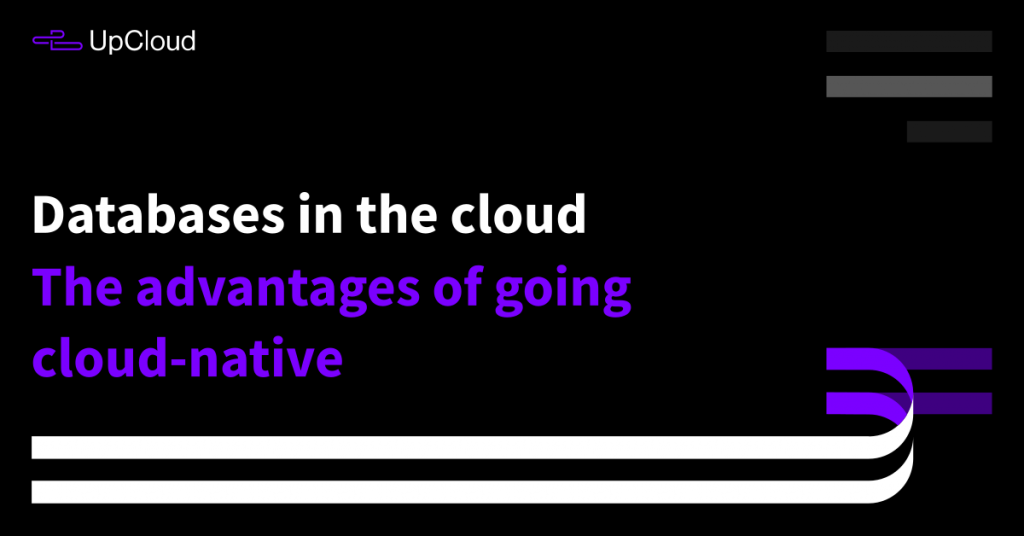Databases are built to facilitate the storage, retrieval, modification, and deletion of data in conjunction with various data-processing operations. Much of database management focuses on reliability and ensuring smooth operations. At its best, the information is quickly accessible at any given time.
Ensuring that your database is reliably fast and highly available will require a great platform to build on. This is the first post in a series of articles where we’ll be discussing the aspects of hosting a database in the cloud, its management, some available database models, and their benefits. At the end of it all, we hope to help you in choosing the best solutions for your next database.
The appeal of the cloud
Many online services are moving to the cloud in search of reduced costs and maintenance, and so are database operators. However, deploying in the cloud is not about just uploading your data onto someone else’s server. The features offered by cloud hosting should not be an afterthought but rather the solid ground to be built upon. Having a good understanding of the benefits will allow you to take full advantage of the right platform.
Modern cloud infrastructure allows a wide range of options ranging from self-deployed servers to fully managed services. The wide variety of options is generally thanks to the cloud offering an abstraction from the physical hardware. The virtualisation layer provides new freedoms for choosing the server configuration and location which can be leveraged by many different service models.
Migrating to the cloud
One of the driving forces of the cloud is cost-effectiveness. Getting rid of the self-hosted physical infrastructure, you are left with simple monthly payments with no upfront costs. In fact, some providers might offer kick-back programs to cover the costs during migration to help you get started. Additionally, having the actual hardware developed and maintained by the provider reduces the burden on you. This, in turn, helps in cutting the unnecessary management work that too often just take time from more important tasks.
In the cloud, you don’t need to worry about the hardware. Let the experts take care of it.
Another major benefit of the cloud is its scalability to be able to handle growing workloads. In practice, this is accomplished by increasing the system resources to allow more queries to be processed in the same amount of time. The advantage is being able to adjust resources in reaction to changing workloads without disruption to the application or end user accessibility. Scaling can be done either vertically by increasing the resources to an existing system or horizontally by adding new servers to share the load. The best method for scaling depends on your database model and the infrastructure its built on.
Distribution and high availability
Once your database is tuned to the demand, you should make sure it can continue to operate. Although highly scalable databases can cope with much, true reliability comes from redundancy. On UpCloud, every single possible point of failure has been eliminated with N+1 hardware redundancy throughout our entire infrastructure. In such an event that a component should fail, another will immediately take over the task. Data is guaranteed to be always accessible. We can offer a full 100% uptime service level agreement (SLA) with confidence.
In addition to the aforementioned features, cloud hosting can also provide capacity in many regions. Much of the data consumed online is stored in various kinds of databases across the world. Systems from small network storage caches to large data clusters share the aim to serve users as quickly as possible. However, users’ proximity to the data matters, and bridging the distance is best done through distribution. Because of a wide range of available locations, the cloud provides a great platform for building content delivery networks.
Summary
Cloud infrastructure offers many benefits for hosting databases such as reduced maintenance, improved resilience, and easier scalability. In the second posts to this series, we are looking into some of the different database service models. So stay tuned as there is more to come!


